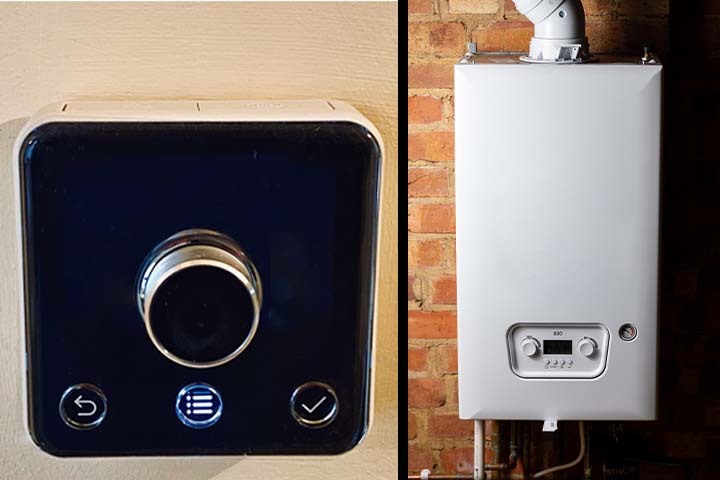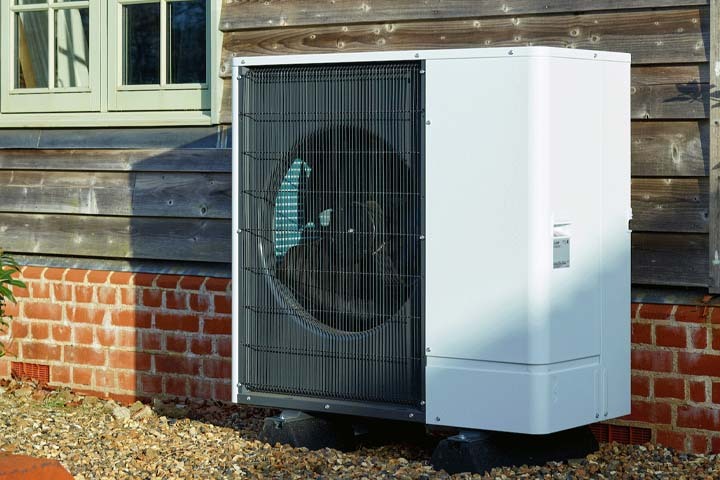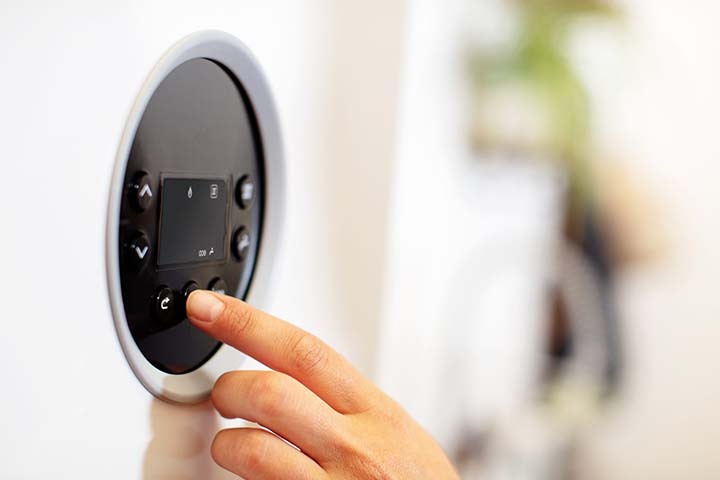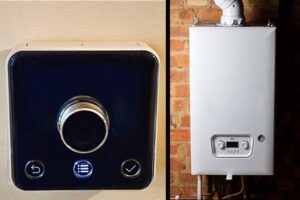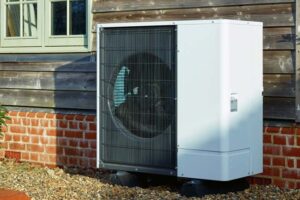Table of Contents
Since the last two decades, an abrupt variation in the global temperature has been observed due to global warming. The biggest cause of greenhouse emission is the CO2 produced by human activities. According to the European Commission, the average world temperature is currently increasing at a rate of 0.2°C every decade.
Perhaps, this is the high-time when we have to make a shift towards renewable sources, especially related to heating systems. The latest heating technology that relies on renewable energy is the air source heat pump. It does not use scarce resources to operate. Rather, it takes heat from the outside air to heat your home as well as provide warm water.
So, it will not be wrong to say that air source heat pumps are the future of the home heating system. Soon, other technologies will become obsolete, especially in the United Kingdom. Let’s get a more understanding of the new heat pump technology and its pros and cons before doing some analysis & comparisons.
How Do Air Source Heat Pumps Operate?
Air source heat pumps function by extracting heat out of the air even when it is cold outside. The heat is then released into the house to heat it. This system is literally the reverse mechanism of a refrigerator. The heat pump needs electricity to run but uses less than what it produces in heat. This makes it an efficient option compared to traditional heating systems.
Are These Heat Pumps Energy Efficient?
Air source heat pumps are indeed much energy efficient. They require one unit of electrical energy to generate three heat energy units. This means therefore that more heat is obtained while utilising less energy thus making the bills cheaper. Traditional boilers however burn so much energy to provide the same quantity of heat. Because of this advantage, ASHPs also help in reduction of overall energy consumption.
Are They Worth It in 2024?
In 2024 heat pumps can be without a doubt recommended. Growing energy prices make them an intelligent solution. The orientation of the UK government to greener technologies means that more aid for the heat pump fitting will be offered. One of the aids is the Boiler Upgrade Scheme whereby homeowners can get up to £7,500 of grants for the installation of ASHPs. While another grant known as ECO4 covers the complete installation cost even though it’s too much. They are an ideal form of heating considering the savings generated in the long run as well as the effects on the environment. This is going to be a thanks giving hot heater however the cost of purchase is quite high. But the energy spent on finding the device and the concern for nature is worth it.
Pros and Cons of Using Air Source Heat Pumps
Pros:
- Energy Efficiency: ASHPs are highly efficient, producing up to three times more heat than the energy they consume.
- Lower Running Costs: They can significantly reduce your heating bills over time.
- Environmentally Friendly: ASHPs have lower carbon emissions than gas and oil boilers, helping to reduce your carbon footprint.
- Government Grants: Support is available to help with installation costs, making them more affordable.
- Low Maintenance: Requires less maintenance compared to boilers.
Cons:
- High Installation Costs: The initial cost is higher than traditional systems, ranging from £6,000 to £12,000.
- Lower Efficiency in Extreme Cold: ASHPs can lose efficiency during very cold weather, although this is rare in the UK.
- Space Requirements: You need outdoor space for the unit and enough airflow around it.
- Noise: The outdoor unit can be a bit noisy, although modern models are quieter.
Comparison with Boilers
Gas-fired central heating systems, especially gas boilers, are among the popular heating methods adopted in homes. This does not, however, mean that they are as effective as air source heat pumps. As gas boilers rely on fossil-fuel (a nonrenewable source), they emit significant carbon pollution. On the other hand, ASHPs draw their energy from clean air, which minimises the greenhouse gas emission.
- Cost: Boilers are cheaper to install, costing around £1,500–£3,000. However, their running costs can be higher.
- Efficiency: ASHPs are more energy-efficient, producing three units of heat for every unit of electricity used. Boilers, on the other hand, only produce one unit of heat per unit of energy.
- Environmental Impact: Boilers contribute more to carbon emissions than ASHPs, making them less eco-friendly.
Comparison with Electric Storage Heaters
Electric storage heaters retain heat overnight and use it the next day. In any case, they are not as efficient as ASHP. Thus, these heaters are more costly to run.
- Cost: Electric storage heaters are cheaper to install, typically costing £500–£1,500. However, running costs are higher than heat pumps.
- Efficiency: ASHPs are more efficient because they generate more heat per unit of electricity. While electric heaters requires more annual payments in terms of bills
- Environmental Impact: Electric storage heaters rely entirely on electricity, which may not always come from renewable sources, unlike ASHPs.
Ground Source vs. Air Source Heat Pumps
Ground Source Heat Pumps (GSHP) utilise the thermal energy stored in the earth, while Air Source Heat Pumps (ASHP) heat air from its immediate environment. GSHP are more latent because the soil temperatures do not vary with change of seasons. Installing them, however, is not only costly but also space consuming as piping has to be done underground.
- Cost: GSHPs can cost between £10,000–£20,000 to install, while ASHPs cost between £6,000–£12,000.
- Efficiency: GSHPs are more efficient in very cold weather, but ASHPs are more practical for most UK homes.
- Environmental Impact: Both systems are eco-friendly, but GSHPs may have a slight edge in terms of efficiency.
Using Air Source Heat Pumps with Solar Panels: Is It Worth It in 2024?
Pairing air source heat pumps with solar panels can be a smart move today. Solar panels generate electricity from sunlight, which can be used to run ASHP. This further helps bring down your energy bills, and significantly increases your home EPC. Since you are making your own electricity, the necessity of using the grid is reduced, which is beneficial in cutting costs and pollution out of the environment.
Given government incentives such as Smart Export Guarantee, which compensates households for the excess electricity they generate and send back to the power grid, the installation of solar panels with ASHPs can be even more cost-efficient. Moreover, there are subsidised ceiling panels in addition to ASHPs making this even more pocket-friendly.
Comparative Analysis
Here’s a comparison of air source heat pumps, boilers, electric storage heaters, and ground source heat pumps based on key factors:
Heating System | Average Initial Cost of Installation | Running Cost per Year | Maintenance Cost per Year | Reduction in CO2 Emissions (metric tons) |
Air Source Heat Pump | £5,000-£8,000 | £500-£1,000 | £100-£150 | 2–3 |
Gas Boiler | £800-£3,500 | £800-£1,200 | £200-£300 | 1–2 |
Electric Storage Heater | £600-£2,000 | £1,500-£2,000 | £50-£100 | 0.5–1 |
Ground Source Heat Pump | £8,000-£20,000 | £400-£800 | £100-£150 | 3–4 |
Key Takeaways from the Comparison
- Air Source Heat Pumps: Higher upfront cost but lower running costs and maintenance. Best for reducing carbon emissions and saving on energy bills.
- Gas Boilers: Cheaper to install but higher long-term costs and much more carbon emissions.
- Electric Storage Heaters: Easy to install but very costly to run and less efficient than ASHPs.
- Ground Source Heat Pumps: Very expensive initial cost but least running cost and environment-friendly option.
Cost of Installing Air Source Heat Pumps
Installing an ASHP can take anywhere between £5,000 and £8,000 based on your home size and heating requirements. This might be out of budget for many people living in fuel-poverty in the UK, but government grants such as the ECO4 and BUS are available. Meaning, absolutely zero cost to the homeowners to install an air source heat pump.
Even for those who do not meet the grant application requirements, switching to the heat pumps is definitely worth the investment. Compared to boilers that cost about £1500 – £3000 to install, ASHPs are costly. However, because of the savings made on energy bills in the long run, such technologies becomes economically favourable.
Running Costs & Maintenance
Compared to older systems powered by gas central heating or electric storage heaters, air source heat pumps cost less to operate. For instance, the average cost of running an air source heat pump system in a home is approximately £400 – £500 per annum as opposed to gas — which is around £800 – £1000, while electric storage heaters can reach even higher annual costs, £1000 – £1500.
The other good thing about ASHPs is that they do not require much maintenance and an annual servicing will only set the owner back between £150 and £250. This is in light of the fact that boilers and electric heaters can be more easily damaged and would therefore need repair and maintenance more often than ASHP.
Environmental Impact
Modern heat pumps are much more sustainable than their counterparts. Compared to gas boilers, they annually save 2-3 metric tonnes of CO2 emissions on average. Electric storage heaters need power, which might originate from non-renewable sources, even if they do not emit emissions directly. Similar to ASHPs, ground source heat pumps also significantly lower CO2 emissions, although they are less widely available due to their greater installation costs.
Should You Switch to Air Source Heat Pumps?
For most homeowners in the UK, air source heat pumps are a viable solution at present. They are energy-efficient and a green-energy alternative because they have relatively low running costs compared to other heating devices. Although the installation cost may be quite high, availability of government grants can go a long way to make the switch. If you are all about minimising your carbon footprint while at the same time cutting on costs in the end, then ASHP’s would be the perfect heating system for you.
In a Nutshell
Air source heat pumps have a clear edge over other heating systems. These heat pumps run more efficiently & effectively, use less electricity, and are eco-friendly. Combining ASHPs with solar panels will even enhance your home efficiency for taking all energy from the sun. Though air source heat pumps are expensive to purchase and install, government grants make it more logical in pursuing a sustainable energy future without spending a penny. If you are thinking of bettering your home heating system, ASHPs are definitely worth looking at.
Frequently Asked Question
As the global trend is shifting towards renewable energy solutions, air source heat pumps become the future heating option and all other previous options might be obsolete.
The only two drawbacks of using heat pumps are they cost big initially and they are a bit less effective in extreme climates. Because heat pumps take heat from the outside air and then compress it to increase its temperature. However, that temperature raise is not that high which is required in extreme climates.
If you are using a boiler or traditional heating that runs on fossil-fuel, it increases CO2 emission and relies on scarce resources. By switching towards a renewable energy source like ASHPs definitely bring about a big change, environmentally, economically, politically and socially in the UK.


